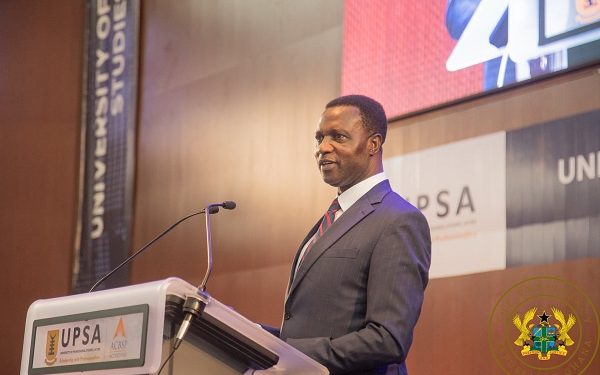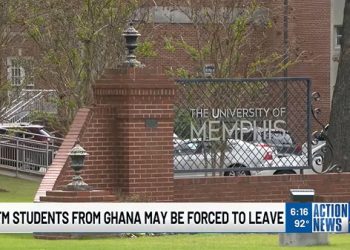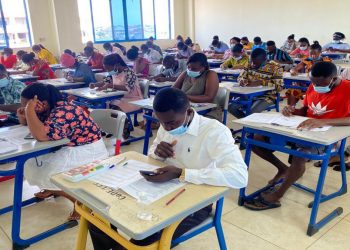Government in the 2023 Budget Statement has only allocated 12 percent to the education sector which is about three to eight percent short of the international benchmark of at least 15 percent to 20 percent, a situation the Africa Education Watch (Eduwatch) describes as alarming.
In the budget statement, out of the projected government expenditure of GH₵205billion, only GH₵24.7billion, representing 12 percent of the total budget, is allocated to the education sector.
Meanwhile, at the Global Education Summit held in July 2021 in the United Kingdom (UK), President Nana Addo Dankwa Akufo-Addo pledged to spend at least 23 percent of the national budget toward the development of education in the country over the next medium term from 2021 to 2025.
According to Eduwatch, this is not only one of the lowest proportions of government budget allocation to the education sector in about two decades, but also raises concerns about Ghana’s ability to meet the upper limit of the international education financing benchmark of 15 percent to 20 percent of public expenditure, and 4 percent to 6 percent of gross domestic product (GDP).
Even more alarming, according to Eduwatch, is that only 39 percent (GH₵1.8billion) of the GH₵24.7billion was allocated to Ghana Education Trust Fund (GETFund), against total GETFund levy accruals of GH₵4.6billion for education financing.
Furthermore, out of the total allocation to education, GH₵2.7billion, representing 12.1 percent of the total education allocation, is earmarked for Capital Expenditure (CAPEX), where education infrastructure is financed.
This, compared to the 2022 allocation of GH₵1.4billion, represents an increase of 92 percent but is still too insignificant to tackle the gargantuan education infrastructure needs, hence, fewer infrastructure projects outcome should be expected.
“The declining proportion of the national budgetary allocation to the education sector has a strong potential to negatively affect the attainment of the Sustainable Development Goal (SDG-4) targets, especially at the basic education level. Government must take steps to augment the deficit in the 2023 supplementary budget, and revise the medium-term expenditure framework to reflect its international commitments on education financing, as well as the real needs of the sector,” Eduwatch lamented.
The Executive Director of Eduwatch, Kofi Asare, has called on Parliament to interrogate the Minister of Finance, Ken Ofori Atta, about why the 25 percent capping of the GETFund could possibly lead to an allocation of only 39 percent of accruals to the GETFund levy, adding that the continuous capping of GETFund is inimical to education development, especially at the basic level where the infrastructure gap continues to widen.
Out of the total allocation to education, GH₵4.9billion, representing 21.4 percent of the education budget is allocated to goods and services.
This, compared to the 2022 allocation of GH₵4.4billion, does not only represent an increase of 11 percent, but indicates an increase in the proportion of the education budget spent on goods and services from 17.9 percent in 2022 to 21.4 percent in 2023.
Out of this Gh₵2.95 billion representing 60 percent is earmarked for financing the free Senior High School (free SHS) programme. This constitutes an increase of 26 percent from the 2022 allocation of Gh₵2.3 billion.
Infrastructure deficit at basic level
There are 1.2 million children out of basic school in Ghana, mainly because of huge deficits in the availability of public basic schools in underserved communities.
This, coupled with the over 5,000 basic schools taking place under trees, sheds, and dilapidated structures, and the lack of Junior High Schools in about 4,000 primary schools must be enough reason for the government to listen to calls by Parliament and Civil Society for uncapping the GETFund.
source: Business and Financial Times



















































